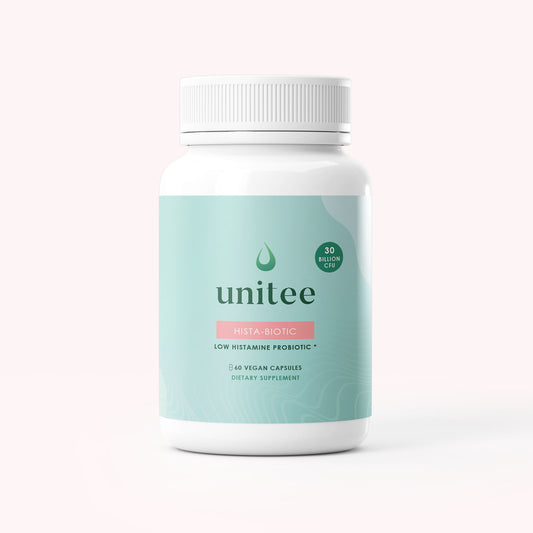Are you on a restrictive diet to control or heal your digestive issues?
Do you find it hard to balance social gatherings with your dietary restrictions?
If so, rest assured that you’re not alone, and today I’d like to share a few strategies and lessons that I’ve learned to help find that balance.
The Underestimated Challenges Of Being On A Digestive Repair Diet
One of the hardest parts of sticking to any particular diet is attending social gatherings – and this can make all the difference in deciding whether you leave with a happy tummy, or are left with bedridden bloating that you have to face for days following.
One of the crappiest parts of being on a restrictive diet is that people rarely understand what you’re going through. Unless they’ve experienced it themselves, they’re often are very quick to judge and belittle what you’re doing.
In my most restrictive dietary days (during initial phases of intestinal repair), I got put down a lot! Not only was I on a restrictive diet, but I was also living in Indonesia for a large portion, so the language barrier at restaurants added a lot of stress to the situation.
In the few instances that I didn’t cook at home, my attempts to order restaurant meals that were well-cooked and sauceless while making a few substitutions would elicit every negative response from groans to eyerolls to verbalized frustration from others at the dinner table. I even once got called “selfish” in front of a crowd for not eating the chinese food at a friend’s wedding.
It made me shy, embarrassed, and depressed, driving me to the point where I would purposely abstain from attending social events in order to avoid feeling these negative emotions.
Unfortunately, this abstinence did more harm than good, as I ended up confining myself to my own home, isolated from the possibility of forming meaningful friendships. This left me feeling more alone than ever, and the stress of loneliness and isolation was definitely not good for my mentality.
Dietary Restrictions: A Common Hidden Struggle
In a world where processed foods rule, it can easily become a very bizarre concept to eat a diet that’s all-natural all the time, especially when you have added restrictions to certain natural foods as well. But one of the most life-changing things I wish I had known back then was that there is a massive community of people with digestive disorders who share dietary restrictions, and that I didn’t have to be alone in my journey to better health.
With one in every five North Americans possessing IBS, which is far from being a “socially-acceptable” topic, I can guarantee that there’s plenty of people around you who are suffering in silence.
I’d like to talk today about how to not only effectively navigate social events while sticking to your restrictive diet, but how to explore potential ways to support your journey to better health.
14 Ways to Enjoy Social Events while Sticking to Your Diet

1. Find friends with common dietary habits
Hanging out with people who have similar bloating issues, dietary restrictions, or just beliefs about health can be life-changing when it comes to sticking to your diet. They can also provide a great support group – try websites like www.meetup.com to search for healthy eating groups in your area.
2. Cook for your friends
Sharing your healthy recipes can actually encourage people to be healthier. At nearly every one of my dinners I’ve had people leave asking me for the recipes, frequently sending me pictures of them cooking it later in the week! People want to be healthy, but have a tendency to picture healthy food as steamed broccoli and plain chicken breast. Sometimes, they just need a little lesson on how delicious and creative healthy eating can be!
3. Bring a dish for everyone to share
If you’re attending a dinner party, bringing a homemade dish can come across as a polite gesture while strategically providing yourself with a safe dish to focus on. It may require bit of extra effort, but the time it takes to do this is likely going to be less than the time you will spend suffering from extreme bloating afterwards.
4. Call ahead at restaurants
This tip can be a life-saver for business dinners or other meetings where you won’t be surrounded by people you’re fully comfortable with. Call ahead and ask to speak to a manager to ensure your dietary requirements are taken seriously, and once you arrive, ask the hostess to point you out to your server so when orders are being taken you won’t have to publicly explain yourself at the dinner table.
5. Choose the restaurant
Take initiative and choose the restaurant sometimes – you can try www.happycow.com, but it doesn’t have to be a super-obvious healthy hippie joint. Just do your research and choose something that you know has safe and simple options. I personally will take any restaurant with breakfast options and order eggs and fruit.
6. Try new activities
Bonding over activities that revolve around eating can require some creative thinking, but the end result can be a super fun new experience for both you and your friend. Try browsing the activities section of websites like www.groupon.com to get inspiration and quick discounts to help persuade your friends.
7. Invite people to hang at your home
Hosting social gatherings can do wonders for your social life. People will come and enjoy their life in your space – which, if you’re comfortable with it, can be pretty great! All food, snacks, drinks, and even outfits in case of unpredictable bloating are at your fingertips. Even if people feel like ordering in, you’ve got a world of options in the next room!
8. Pack your own snacks
This works great if you’re headed for a day out with your friends. Attending festivals, sporting events, or even heading to the movies are all great examples of social scenarios in which it’s easy to bring your own food. If anyone asks, saying you simply want to be healthy, save money or don’t want to waste what you’ve packed are all acceptable excuses.
9. Eat before you go
If you can’t pack snacks and are headed to a restaurant that you know will be totally unsafe (cue chinese food), just eat before you go. This option kind of sucks, and can still require some creativity, such as finding a plain side like rice or tortilla chips to nibble on without feeling singled out. The important thing is that eating before you go can ensure you don’t accidentally make poor decisions because of hunger and social pressure.
10. Find a partner in crime
On occasions where there’s a lot of social pressure (ie, bar nights), it can sometimes just be easier to find yourself a partner in crime to eat/drink both their portion and yours. I’ve found men in particular love having this job, and I was lucky enough to have a supportive hubby along the way. Every time people brought me a slice of cake or vodka shots, he’d respond “I’m on it” and quickly devour everything when nobody was looking. It would be a hilarious inside joke until the double-vodka shots would hit him and I would be the care-taker. Still hilarious.
11. Use humour
Joking about your situation can be an awesome way of communicating how you feel without being a buzzkill or eliciting a debate about food choices. Saying things like “I only eat delicious food on special occasions” or “I promised my butt I’d eat healthy this week” can help get your point across without coming across as defensive or preachy.
12. Harmless excuses
Using false excuses like “I had a huge lunch and am still full” or “I’m feeling a bit sick today” may elicit a bit of guilt at first. But in reality, these excuses tend to resolve the situation quickly without hurting anyone. If people find out the real reason, they will generally be understanding about why you didn’t want to share the full story.
13. Building up tolerance
In a perfect world, we would never eat anything unhealthy, and processed foods wouldn’t exist. Unfortunately, that’s not how it works, and unless you live in a bubble, it’s inevitable that you will occasionally be exposed to unhealthy foods. The solution here is to build up a biological tolerance to all foods, so that during occasional unwanted exposures, your body won’t freak out. Tolerance building applies to people in later stages of gut-repair regimes who are re-introducing food. During this stage, although it’s important to get the largest variety of healthy foods back into your diet as soon as possible, you should also expose yourself to some common, not-so-great ingredients once every 10-14 days to increase immune tolerance. Just be sure you don’t over-do it. A few nibbles can include you in the meal while simultaneously building tolerance and preventing symptomatic flare-ups.
14. Be honest
This option is my new favourite. Before I was open about my digestive issues, a lot of people assumed I was picky, paranoid or weird. After years of this, I just began being honest. “I become so bloated, foggy and fatigued to the point where I’m bedridden”. That definitely made people stop pushing me to eat unsafe food, and instead tried to learn more about my decisions – occasionally even opening up about their own similar symptoms! If you are uncomfortable describing your symptoms, make up a simple symptom that they can understand like “I get really bad stomach aches if I eat certain ingredients”. Everybody understands physical pain, and I guarantee people will treat your food more cautiously if they’re concerned about putting you in pain.
You’re Not Alone
Remember, all of the best things in life require effort. Sticking to your healthy diet for a few months to help your body heal may seem difficult now, but allowing your sickness to progress and likely becoming even worse….well, that’s going to be way more difficult in the future. And at that point, it may be too late to turn things around.
The important takeaway here is that you’re not alone. Whether it’s being on a strict gut-repair diet, or simply wanting to lose a few pounds for an event, everyone who is working on their health can feel out of the loop at times. Always keep your end goal in mind, let yourself make occasional mistakes and find people who will support you along the way, rather than bringing you down.
Now it’s time to help each other out! Share how you stick to your diet while socializing in the comments below!
Health begins in the gut,
Anita Tee, MSc

Anita Tee
My name is Anita Tee. I'm a nutritional scientist who specializes in histamine intolerance. I hold a Master of Science in Personalized Nutrition and a Bachelor of Science in Human Biology and Psychology. For the past ten years, I have used my experience in nutritional and medical health sciences to create a scientifically backed, natural approach to healthcare that relies 100% on evidence-based research. As I previously suffered from - and overcame - histamine intolerance, my focus is to increase recognition and expand the available resources and protocols available for resolving this particular disorder. To date, I have helped over 4,000 individuals fully resolve or better manage their histamine intolerance symptoms.







